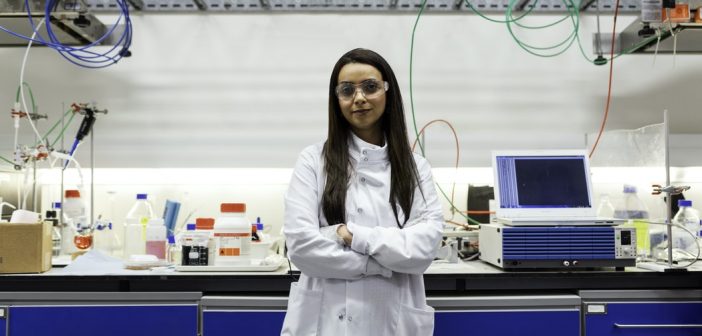Outsourcing clinical research to a medical device CRO can be a good decision for small medical device businesses. Here’s what to look for while hiring a medical device CRO or medical device consultant.
Small-to-medium-sized medical device companies often don’t have the resources to be able to hire full-time teams who can handle all the complexities of clinical research for medical devices. Regulatory requirements, ethical considerations, routes to regulatory approval, technical documents: all of them form a crucial part of the clinical trial process. It is important that medical device companies choose a CRO that has had a good track record of success performing clinical trials and are up-to-date with the latest regulations in different geographies. Here are 3 things to look for while outsourcing clinical research to a CRO.
The right expertise
While choosing a CRO for your research, pick one that has experience specific to medical devices. Has the CRO worked with medical devices of different classes? Do they specialize in a specific class of device or a specific therapeutic area?
Shrinidh Joshi, clinical research consultant and freelance medical writer on Kolabtree, says, “Many CROs are pharmaceutical-focused and lack sufficient medical device trial experience. Medical device companies should identify this fact early in the CRO evaluation process. The core operational aspects of running pharma and medical device clinical trials are the same, but there are also significant differences. If a CRO has mainly dealt with the pharma clinical trials then it is more than likely that their expertise is not in medical device space.”
He advises, “Medical device companies should be looking for more than general medical device trials experience in a CRO. The ideal vendor for medical device clinical trial will have demonstrated success in conducting clinical research in the product’s therapeutic area and for its specific indication. If the CRO has worked for product designs and devices that are similar to your device or predicates that would be an ideal CRO.”
Transparency
Honest communication and transparency is the key to a good working relationship. Shrinidh recommends, “While working with a CRO, I cannot stress enough on the importance of mutual transparency, trust, honesty, and communication on both sides of the sponsor (medical device company)-vendor (CRO) relationship beginning as early as the evaluation phase.
“Sponsors should be open with a CRO about exactly what they need from the agreement, what their definitions of success and failure are, what they can afford, and how long they expect the work to take. They should be honest about their in-house capabilities (or lack thereof). It’s also beneficial for sponsors to communicate their strategic approach going forward — not only in clinical but in sales and commercial. It is possible that within the medical device community, the clinical trial environment is relatively new so the sponsors are not necessarily comfortable sharing long-term strategies, commercial strategies, or managed care strategies with CROs or vendors. However, as an insider, I can say that it is so important for vendors to understand the long-term strategies of sponsors.
“On the other side, sponsors should hold out for a vendor that is candid regarding its specific capabilities, areas of strength and weakness, specific services provided, costs, etc. Proper alignment between the medical device company and CRO is important for the success of a medical device clinical trial. The advantages of building a collaborative, mutually respectful relationship with your CRO can be significant.”
Experience with regulatory requirements
While choosing a CRO, it’s important to ensure that they are experts in the regulatory requirements and ethical rules that govern clinical research. In Europe, med device companies need to comply with the Medical Device Regulations and obtain a CE mark, which allows them to place a product in the EU market. Clinical evaluation forms an important part of the process, and maintaining and updating a clinical evaluation report or CER is mandatory. As the MDR is still new and there is still some uncertainty about what exactly is required, it is important to work with an expert who has experience writing CERs especially in line with the new regulations. In the US, the FDA governs aspects of clinical research. All clinical trials are required to get IRB approval, which reviews the clinical trial protocol and ensures that the study meets ethical considerations. Ensure that you work with consultants who are well-versed with FDA pathways for approval, technical documents, clinical trial protocols and international guidelines for conducting trials. Always ask for examples of medical device clinical trials they’ve worked on before and make sure what they can deliver meets your expectations.
When you should work with independent medical device consultants
Depending on your requirements you may want to consider working with independent consultants, rather than hiring a full-fledged CRO. Maybe you’re looking for help with a very specific aspect of your research: a one-person job. You may need help with elements of your clinical research such as:
- Understanding regulatory requirements and preparing regulatory documents
- Developing a clinical trial protocol
- Preparing a grant application or research proposal
- Performing statistical analysis and verifying outcomes
- Clinical evaluation for CERs (MDR)
- FDA submissions
- Writing press releases and developing corporate communications about your clinical trial
Working with medical device consultants on demand makes it easy for you to explain your requirements on a one-on-one basis and customize deliverables. You save on overhead costs and managerial spends that might come with working with a CRO. Based on the complexity of your medical device and the kind of support you require, you can choose the best approach that helps you gain maximum benefit so that you can launch your medical device with confidence.
Need to consult a medical device specialist? Connect with experts directly on Kolabtree. It’s free to post a project and get quotes. Get started now







